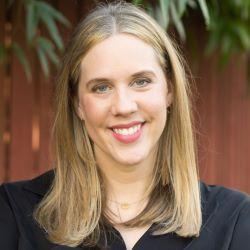Announcing 2022-2023 Washington State Labor Research Grant Recipients
The Harry Bridges Center for Labor Studies awards annual grant funding to UW graduate students and faculty for research on aspects of labor directly relevant to policymakers in Washington State. We are pleased to announce five new projects for the 2022-2023 academic year, representing over $33,000 in total funding.
|
Marissa Baker, Assistant Professor, Environmental & Occupational Health Sciences Characterizing bus driver exposure to secondhand drug use and impacts to well-being Transit operators provide the crucial service of ensuring safe and reliable transportation to all community members. This vital work can be stressful and at times unsafe. Little is known about the impact on transit operators of secondhand exposure to airborne drugs. Some transit operators have reported potential health effects related to secondhand exposure, and many have observed increases to the usage of illicit drugs on buses and trains. With this observed increase, better understanding the potential impact of secondhand exposure is essential. Baker and her team will work with Amalgamated Transit Union (ATU) Local 587, Local 1576, the ATU international Union, and Sound Transit to conduct observations, survey, and interview transit operators to understand their experiences and environment. Researchers will develop protocols to ensure persons with substance use disorders are not further stigmatized in the research process. Research findings and any recommendations for providing safer working environments for transit operators will be shared with a variety of audiences, including the unions, Sound Transit, and policy makers. |
|
Alissa Bilfield, Assistant Teaching Professor, Food Systems, Nutrition, and Health Growing a Model for Fairer Farms in Washington State: Exploring the implications of the US Fairtrade certification for more equitable agricultural labor standards Research has suggested that Fairtrade certification can create more equitable and sustainable practices for agricultural production. As Fairtrade certification has evolved and there are now Fairtrade certified farms in the United States, including one in Washington, it’s important to understand the potential impact of certification on the full agricultural sector. This project will focus on the experiences of farm management, stakeholders, and agricultural workers at Washington State’s first Fairtrade-certified domestic farm in order to better understand how and if this certification has impacted workers' experiences. Bilfield has conducted a previous study at the first Fairtrade-certified farm in the United States, which is located in Arizona, and the model developed for that research will influence this study. Data will be collected through semi-structured interviews, observation, document analysis, and survey tools. Findings will explore labor policy implications for agricultural workers in Washington State and beyond. |
|
Érica Chavez Santos, PhD Student, Department of Health Services Examining the association of labor and social determinant related policies on workplace safety and chronic health indicators among agricultural workers While the United States relies heavily on the approximately 2.5 million agricultural workers who grow and harvest our food, these workers experience health and racial inequities that may impact all aspects of their lives. Workers are paid low wages, historically have lacked protective labor laws, have not been guaranteed access to housing, health insurance, breaks, and safe sanitation - all of which impacts workers’ health. The vast majority of agricultural workers are immigrants, and experience structural racism at the intersection of labor and immigration policies. Chavez Santos will develop an interview guide for agricultural workers with the Agricultural Community Advisory Board to assess workers’ understanding of existing Washington based agricultural worker protections, whether these are enforced in their workplace, and gain insight on the types of social determinant and labor policies that are important to agricultural workers. Findings will be used to create a Labor Policy Equity Index (LPEI) that centers the experiences and values of agricultural workers to assess whether the LPEI is associated with workplace safety indicators using National Agricultural Worker Survey (NAWS) data. The research aims to address the gap in knowledge regarding the role of labor and social determinants policies in the health of agricultural workers, and seeks to inform policy makers in Washington and beyond. |
|
Kurt Ellison, Masters Student, School of Marine & Environmental Affairs Securing Equity for Workers in the Pacific Northwest Offshore Renewable Energy Supply Chain Washington passed the Climate Commitment Act in 2021 - which calls for carbon neutrality by 2050, and state policymakers have identified coastal zones in the Pacific Northwest as potential areas for offshore wind and marine hydrokinetic energy production. Washington’s “Maritime Blue Strategy” identifies offshore renewable energy as a part of the blue economy strategic goals - which include the development of a “blue economy” workforce, which is a marine-based expression of the “green economy.” Ellison’s research will seek to understand how waterfront workers define equity and will develop a framework for centering labor justice in state-based blue development. Research questions include who are the workers in the offshore energy supply chain, and what social groups are currently excluded? Can these new opportunities be designed to diversify the workforce in marine-based labor, and to support communities that have not historically benefited from coastal development? Ellison will conduct semi-structured interviews, facilitate group discussions, complete participant observation, and utilize a comparative dimension through site visits outside of Washington. Research will contribute to the Blue Nexus Pacific Northwest working group’s equity analysis, and provide a framework for defining equity for blue economy workers. |
|
Audrey Omar, PhD Student, Department of Sociology Students, Parents, Workers: Exploring student parents decision making and role conflict Research indicates that 70-80% of full-time students are also workers. Approximately 25% of that population also has parenting responsibilities which further stretch their labor. While student parents are an understudied population, research indicates that this group is disproportionately made up of single mothers and people of color. Student parents have higher student debt, higher grades, as well as a higher risk of leaving school before they graduate. Student parent workers, due to their multiple roles, have to navigate decision making and role conflict routinely. For student parent workers to be better supported in higher education, more needs to be learned about how they are currently navigating decision making. Omar will conduct semi-structured interviews with students who identify as parents focusing on their decision to become student parents, what type of role conflict they experience, and how they resolve issues of work-family-student conflict. Respondents will also complete validated tools measuring stress, work-family-school-conflict, and decision making style. Omar’s findings on student parents’ decisions to become parents and how this population manages decision making and role-conflict will be shared with University of Washington administrators. |




